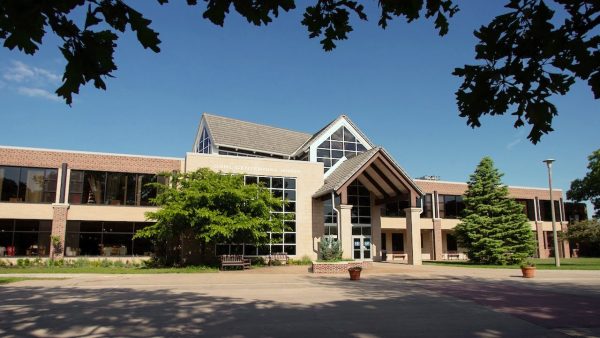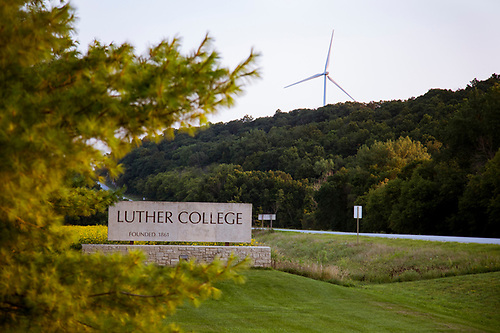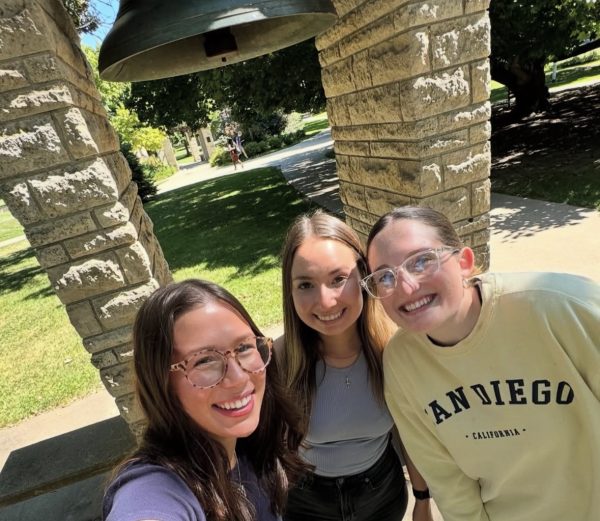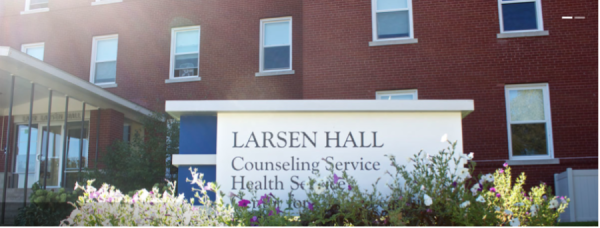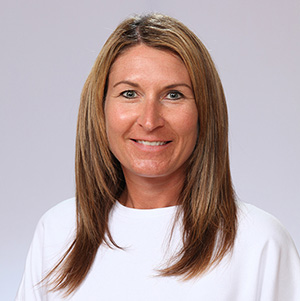Paideia Lecture: “Amish Genetic Health Needs and an Innovative Community Response
On Saturday, February 6 at 7 pm, the Luther College Paideia Program hosted a lecture titled “Amish Genetic Health Needs and an Innovative Community Response.” This lecture was a part of the Paideia lecture series centered around the theme of “building community in a changing society,” which was deemed especially relevant during these times by Paideia faculty.
The presentation was particularly inspired by Associate Professor of Nursing Angela Kueny’s (‘03) work, as she has been working with outreach clinics that have aided Amish communities in several areas of Iowa and Minnesota since 2004.
“Paideia is a program that asks students and faculty to engage with ‘enduring questions;’ how to address healthcare needs of marginalized populations, in partnership with that population, is an enduring question in health care,” Kueny said. “The answers to this enduring question require creative and community-based approaches, reflecting the mission of Luther College to its students.”
Kueny was joined by Associate Professor of Mathematics Philip Iversen, who used his experience as a statistician in the pharmaceutical industry to assist with data collection aspects of the project, and Professor Emeritus of Social Work Lee Zook, whose personal connections with the Amish community benefited this project. Zook’s grandparents were all a part of the Amish community.
The data collection portion of this project began in December of 2019, with the goal of taking a census of Amish community members and their genetic and pre-existing health conditions, such as hemophilia, food intolerances, dyslexia, ADHD, seizures, and others.
“Our plan was to survey as many of the Amish and plain Menonites in Iowa and Minnesota as possible,” Zook said. “To give you an idea, as of June 2020, the estimated population of Amish in Iowa is 9,780 and Minnesota, 4,740.”
The data collected by the study was considered to be a semi-accurate representation of the plain communities in Iowa and Minnesota. However, it is probable that some families elected not to participate in the survey. Despite there being less than 15,000 Amish between the states of Iowa and Minnesota, there are still many different communities that stay separate from one another and host unique genetic conditions. This leads to different health conditions being more prevalent in some areas of the United States than others.
“Making conclusive statements about aggregate samples inside of the Amish population can be difficult,” Kuney said. “When they immigrated to the United States, some went to Pennsylvania, some went to the Ohio area, so we even have Iowa genetics looking more like the Ohio genetics and the Pennsylvania genetics looking more like the Wisconsin genetics.”
This presentation was also highlighted a larger issue to the Luther community: accessibility challenges in the healthcare system. There are many undiagnosed health issues in the Amish community, typically falling under the mental health category.
“A separate part of the survey asked families to list undiagnosed conditions among members of their household,” Iversen said. “The most common condition on that part of the survey was a ‘slow-learner’, followed by dyslexia and ADHD. We do not know which of these cases are genetically linked, but it is possible that some of them are.”
The work of Kueny, Iversen, and Zook strives to make the Luther, and broader, community more aware of these concerns. Their partnership with the Amish healthcare system aids in the treatment of Amish community members. In a time where individuals are being instructed to physically distance themselves from others, isolated communities experience a unique risk. The efforts of Kueny, Iverson, and Zook work to combat this risk, and produce equitable results.

